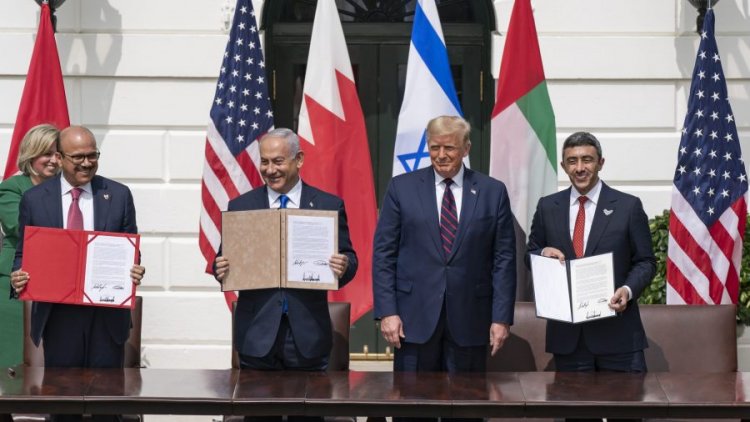ABRAHAM ACCORDS: IMPACT ON INDIA
Asia News Agency Editorial Board

With the formalisation of Israel’s ties with the United Arab Emirates (UAE) and the Kingdom of Bahrain, the two Gulf states have joined Egypt and Jordan which had their peace treaties with Israel in 1979 and 1994, respectively.
Israel’s detente with Egypt and Jordan, in the view of Mahesh Sachdev (former Indian Ambassador, is President, Eco-Diplomacy and Strategies, New Delhi) “did not have any major impact on India as our ties with them were relatively insignificant. However, now India has stronger, multifaceted and growing socioeconomic engagements with Israel and the Gulf countries. With over eight million Indian diaspora in the Gulf remitting annually nearly $50 billion, annual merchandise trade of over $150 billion, sourcing of nearly two-thirds of India’s hydrocarbon imports, major investments, etc., it is natural to ask how the new regional dynamic would affect India.
‘Potential to disrupt the existing politico-economic architecture India’
Geopolitically, India has welcomed the event “calling both its strategic partners. In general, the Israel-Gulf Cooperation Council (GCC) breakthrough widens the moderate constituency for peaceful resolution of the Palestine dispute, easing India’s diplomatic balancing act. However, nothing in West Asia is monochromatic: The Israel-GCC ties may provoke new polarisations between the Jihadi fringe and the mainstream. The possibility of the southern Gulf becoming the new arena of the proxy war between Iran and Israel cannot be ruled out, particularly in Shia pockets. India would have to be on its guard to monitor and even pre-empt any threat to its interests in the Gulf.
“Even more important for India is to manage the economic fallout of the Israel-GCC synergy. With defence and security cooperation as a strong impetus, both sides are ready to realise the full potential of their economic complementarity…….”
The Agreement thus, “has the potential to disrupt the existing politico-economic architecture India has carefully built with the GCC states. India has acquired a large and rewarding regional footprint, particularly as the preferred source of manpower, food products, pharmaceuticals, gem and jewellery, light engineering items, etc. Indians are also the biggest stakeholders in Dubai’s real estate, tourism and Free Economic Zones. In the evolving scenario, there may be scope for a profitable trilateral synergy, but India cannot take its preponderance as a given. It needs to keep its powder as dry as the shifting sands of the Empty Quarter.”
















